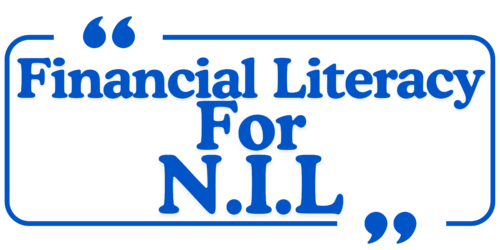As student-athletes enter the world of Name, Image, and Likeness (NIL) deals, they often find themselves in a unique position of financial advantage. The influx of income from endorsements and sponsorships can lead to an increase in social expectations, particularly from friends who may see this as an opportunity for financial support. While it’s natural to want to help friends, it’s crucial for student-athletes to learn to say no when it comes to financial assistance. This article will explore the reasons behind this need for boundary-setting, the potential consequences of giving in to these requests, and effective strategies for handling such situations.
Understanding the Pressure from Friends
Many student-athletes come from diverse backgrounds, and their friends may be aware of their newfound financial status. Friends might approach them with requests for loans, gifts, or even investment opportunities, believing that since the athlete has money, they should share it. This situation can create a sense of obligation and guilt, especially if friends feel they have supported the athlete through their journey.
The Importance of Setting Boundaries
Financial Independence: Saying no to friends who request money is vital for maintaining financial independence. Student-athletes should prioritize their financial health, which includes budgeting, saving for emergencies, and planning for future expenses. Offering financial help can disrupt their financial stability and lead to unnecessary stress.
Avoiding Strained Relationships: Constantly giving in to friends’ financial requests can lead to feelings of resentment and pressure. Over time, this can strain friendships, making interactions more transactional rather than genuine. Setting boundaries helps preserve the quality of friendships by preventing feelings of obligation.
Teaching Financial Responsibility: By declining financial requests, student-athletes can promote the importance of financial responsibility. Instead of enabling friends to rely on them for support, they can encourage their friends to manage their own finances, learn budgeting skills, and seek alternative resources when needed.
Protecting Their Future: Student-athletes must consider their long-term goals, whether that means furthering their education, pursuing a professional career, or saving for major life events. Offering financial support to friends can jeopardize these plans and limit their ability to invest in their own futures.
Fostering a Healthy Mindset: By learning to say no, student-athletes can cultivate a healthy mindset regarding money. They can develop a clearer understanding of their financial situation and what they can afford, fostering a sense of empowerment in their financial decisions.
Strategies for Saying No
Be Honest and Direct: When friends approach them with requests for money, student-athletes should communicate openly about their reasons for declining. Honesty can prevent misunderstandings and help friends appreciate the athlete’s perspective.
Offer Emotional Support Instead: Instead of providing financial assistance, student-athletes can offer emotional support or guidance. They can encourage their friends to explore job opportunities or seek financial literacy resources to help them manage their own finances.
Set Limits on Support: If a student-athlete chooses to help a friend, they should establish clear boundaries on the amount and frequency of assistance. This approach can help manage expectations and prevent feelings of obligation.
Practice Assertiveness: It’s essential for student-athletes to practice assertiveness when declining requests for financial help. They should feel empowered to say no and recognize that their financial well-being is a priority.
Seek Guidance: Navigating these situations can be challenging. Student-athletes should consider seeking advice from trusted mentors, financial advisors, or family members who can provide support in making these tough decisions.
Conclusion
Learning to say no to friends who ask for financial help is an essential skill for student-athletes navigating the NIL landscape. By setting boundaries and prioritizing their financial independence, they can protect their hard-earned income while maintaining healthy friendships. Establishing open communication and offering alternative forms of support can help student-athletes manage these situations effectively. Ultimately, saying no today can contribute to a more secure and sustainable financial future, allowing them to focus on their goals both on and off the field.
Pat Brown, MBA
Financial Advisor and Former D1 Football Player
